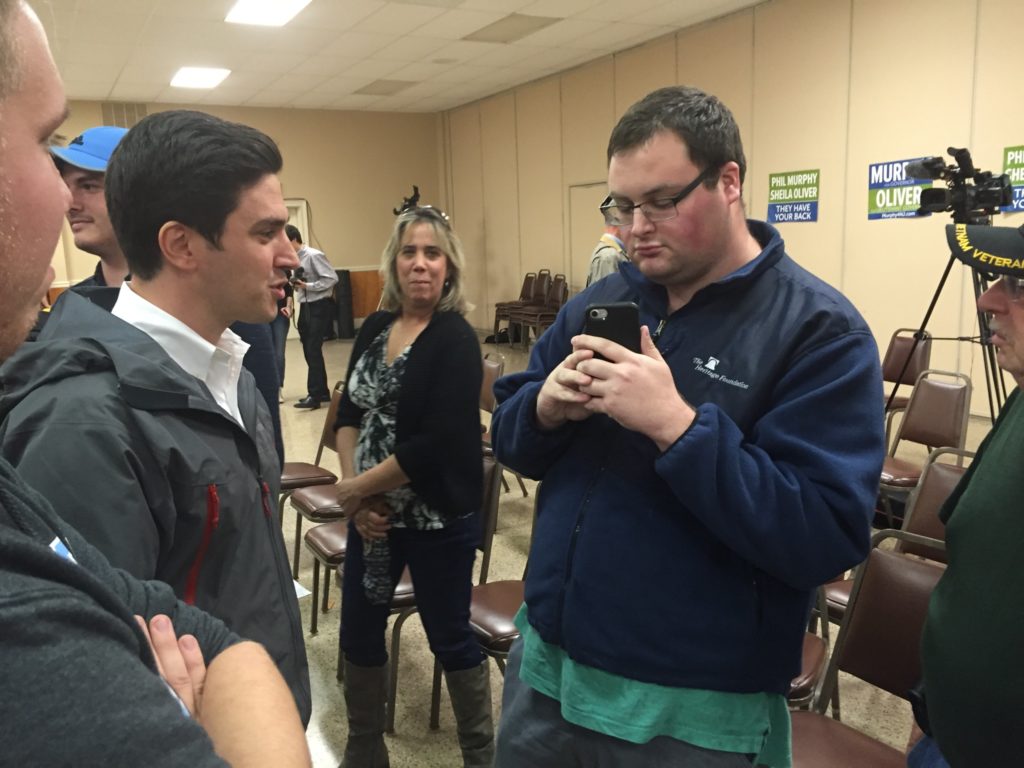Political Party Coffers Shrink as Outside Groups Grow

A recent NJ Election Law Enforcement Commission (ELEC) analytical press release showed that county political party committees raised $14.3 million and spent $13.2 million in 2021.
Though financial activity by the county political parties last year was the highest since the previous gubernatorial election in 2017, activity by county committees was considerably less than during the first decade of the 21st century.
In 2003, county party committees spent $27 million. Thus, even in the non-gubernatorial election year of 2003, county party spending was more than double the $13.2 million spent by these committees last year.
This two-decade long downward trend in county party financial activity reflects that experienced by state and municipal party entities as well.
Whereas county party financial activity has increased in gubernatorial election years, no comparable increase in financial activity by these committees has occurred during non-gubernatorial election years. In fact, county party committee financial activity has averaged 30 percent more during the last six gubernatorial years compared to a similar span of non-gubernatorial election years.
One thing that stood out about the 2021 election year was that county parties received a significant portion of their contributions from groups and individuals outside and inside New Jersey.
Major spending was disclosed by groups like the Democratic Governors Association, affiliates of the State’s labor unions, and wealthy individuals like Democratic donor Stacy Schusterman and Republican State Chairman Bob Hugin.
Even though much financial information was disclosed, a significant amount of money spent in last year's gubernatorial and legislative elections derived from independent, so-called “Dark Money” groups. Under New Jersey law, those groups are required to report to ELEC only if they specifically support or oppose candidates in an election. Even then, they must report only their expenditures, not their contributions.
If groups spending independently refrain from using “magic words” like “support” or “oppose” in their campaign ads, and instead rely on issue-oriented electioneering ads to attack or promote candidates, neither their contributions nor expenditures must be reported to ELEC under current law.
Fortunately, some major independent spenders voluntarily disclose both their contributions and expenditures with ELEC. But such disclosure could disappear overnight without a new state law that requires it.
During the gubernatorial election of 2021 independent, outside group spending spiked by 69 percent from $24.5 million in 2017 to $41.7 million last year. The $41.7 million represented nearly 46 percent of the total spent on the gubernatorial election (includes general, primary, and pre-primary spending).
Likewise, total spending in last year’s legislative contest reached $49.2 million, with 27 percent from independent groups that expended $13.5 million (general election only).
Compared to the 2005 gubernatorial election year, when there was just $411,224 in independent spending, overall outside group spending of $57.5 million in the 2021 New Jersey election represented an astronomical increase of 13,884 percent.
While independent group spending has soared, financial activity by political parties has declined. For example, in 2005 the two state parties, four legislative leadership committees and 42 county parties collectively spent $38.7 million compared to $411,224 by outside groups.
By 2021, spending by the state party entities and county political parties had dropped to $30.3 million, a decrease of 22 percent from 2005, while independent group spending on state elections reached $57.5 million.
Participation in elections by independent groups is protected by the First Amendment of the Constitution. However, their increase in influence over New Jersey elections and the concomitant decrease in influence by more regulated and accountable political parties is not in the best interest of the electoral process.
If political parties can be required to disclose their contributions and expenditures, to be transparent with their financial activity, then the same standard of transparency should be applied to independent groups when involved in election-related activity.
It is important both for the public to be apprised of who is behind these groups as well as for enforcement agencies that have found disclosure to be a useful tool in tracking down unlawful activity.
Political parties are more regulated by law both in terms of how and when they are organized as well as in terms of disclosing their financial activity. Parties provide a guide to voting, help to moderate the governmental process, organize government, and help to turn-out the vote.
Importantly, the public usually can connect the dots between the party and candidates whereas it is often difficult to do so between a candidate and a political attack ad run by an independent group.
There are myriad reasons why political parties should be strengthened and independent groups required to disclose their campaign finance activity, not the least of which is to return balance to the electoral process and more transparency to the public.
Over the years, the Election Law Enforcement Commission has proposed legislation that would accomplish balance and enhance democracy. Among the proposals are: 1) disclosure of contributions and expenditures by independent groups when engaged in election-related activity;
2) disclosure by public contractors of contributions to independent groups; 3) increased contribution limits on contributions to parties; 4) removal of parties from pay-to-play; 5) inclusion of special interest PACs under pay-to-play; 6) allow parties to participate in gubernatorial elections; and 7) allow county parties to party-build during the primary election using fund transfers.
Hopefully, the Legislature will consider these proposals and move legislation that will bring greater transparency to the electoral process and strengthen traditional political parties.
Jeff Brindle is the Executive Director of the New Jersey Election Law Enforcement Commission.
The opinions presented here are his own and not necessarily those of the Commission.





